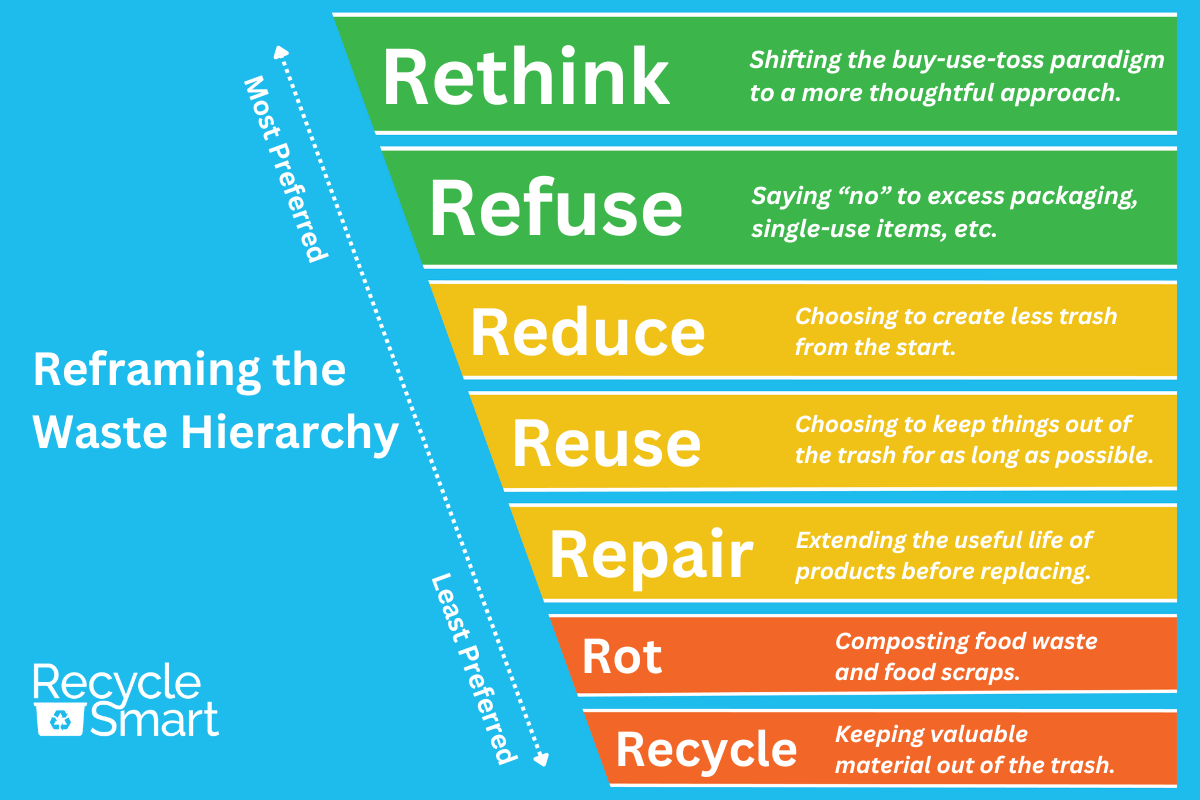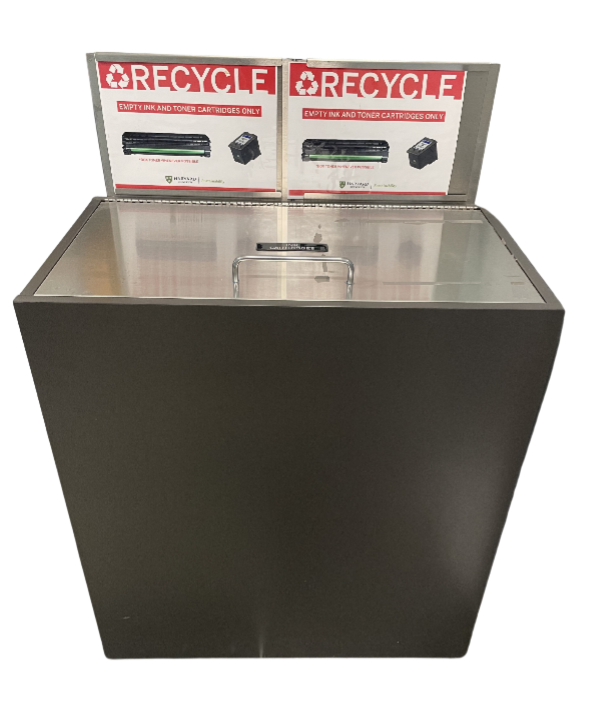At Harvard, we aim to sustainably manage all waste streams—including plastics, electronics, recyclables, and organics, as well as construction, demolition, and hazardous waste—while prioritizing waste prevention and reduction.
Explore resources from Harvard Recycling & Waste Management, including more info about where waste generated at Harvard actually goes after leaving campus.
When making decisions about managing our waste at HMS, we prioritize Rethinking and Reducing waste. Source: Recycle Smart

Highlights
- HMS has recycled over 70,000 lbs of pipette tip boxes since the program expanded to the full campus in August 2020 from its initial pilot. The plastic recycled from this initiative is being made into new laboratory products!
- Stop by the HU Longwood Reuse Room to check out or donate office supplies and lab equipment that can be reused by students, faculty, and staff on campus.
- Routine cleaning products and tools used by the University's custodial staff are all Green Seal Certified. Learn more about how sustainability is embedded into custodial work!
Resources
- Visit the Custodial webpage for info on removals of biohazards, large non-working equipment, and other services on campus.
- Download signs here
- Need stickers or signs for your space? Reach out to: sustainability@hms.harvard.edu
- Interested in learning more about effective waste management at HMS? Contact us at sustainability@hms.harvard.edu to schedule a quick 'Waste 101' presentation tailored for labs, offices, or any group eager to improve their sustainability practices.
Know the Rules of Waste Diversion on Campus!
Recycle
Our recycling is “commingled”, meaning no sorting required. Plastic, metal, all paper & cardboard go in the same bin, sorted later at the Material Recovery Facility (MRF).
- No plastic bags
- No Styrofoam
- No food
- No liquid
- No electronics, batteries, lightbulbs
- No gloves
- No textiles
- Paper and cardboard must be dry and clean
Recycling at Harvard offers more information about what can be recycled and how. Check out their Waste Wizard!

Textiles
Clean textiles are banned from trash disposal in Massachusetts. This includes clothes, shoes, bedding, towels, curtains, fabric, and similar products. Donating textiles for reuse or recycling saves valuable resources and prevents unnecessary waste. Textile recycling bins are currently located in Vanderbilt Hall.

E-Waste
Anything with a plug or battery! Larger electronics are picked up by custodial or given to HMS IT for data security cleaning prior to recycling. Please bring all electronics with data (phones, laptops, USB drives) to your IT office before recycling. Handheld Electronics go in the blue tube recyclers located in the lobbies of most buildings on campus.
Toner & Inkjets
Recycle ink and toner cartridges by depositing in one of our ink/toner recycling bins located across campus. Bins are currently located in the lobbies of most buildings on campus.

Universal Waste
Batteries, mercury containing devices (bulbs, thermostats), aerosol cans. If your battery is leaking or too large to fit into the provided container, please contact EH&S to arrange for safe disposal. Batteries can be recycled in the black tubes located in the lobbies of HMS buildings. Please tape the terminals with clear tape.

